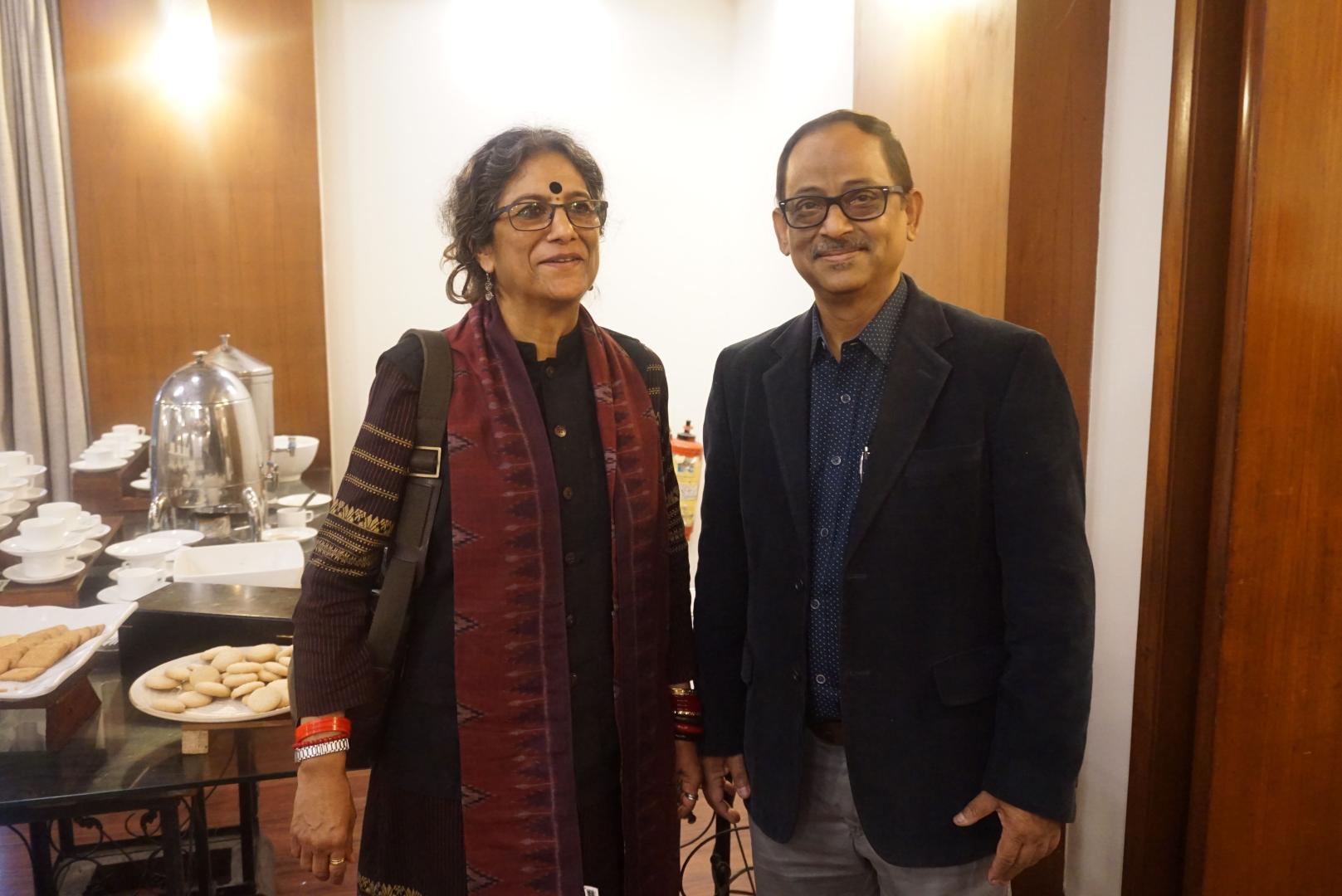Event reports
Peter Rimmele, Resident Representative of the KAS India office, in his Welcome Remarks, stressed upon the crucial condition of the freedom of the media in many countries of the world. For this reason, KAS has been promoting a free and independent media as an integral part of its work for more than 40 years. Dr. Michael Feiner, Consul General of Germany in Kolkata, praised the long-term cooperation between the C R Irani Foundation and KAS. Not only did this event mark the 10th anniversary of the Editors´ Conclave, it was also the year where KAS celebrated its 50 years of activities in India.
Mahfuz Anam, Editor-in-Chief of The Daily Star in Bangladesh, echoed Ravindra Kumar’s (Editor of The Statesman) advice for an introspection of the media profession in his Keynote Speech by saying that members of the media fraternity should try to look inwards and in his words “collectively adopt self-correction”. He added that in the past, journalists often failed to give voice to the common people and rather, acted as the henchman of the powerful.
Discussing the Erosion of values or suspension of disbelief during the event’s first session, retired IAS (Indian Administrative Service) officer Tuktuk Ghosh raised her concerns about the state of the media in the country and the various problems that it encounters. While mentioning the journalist-politician- nexus in an environment where a “give and take” relationship was the norm, she said that there was hardly any media house today which was completely free of government restrictions and manipulations. Dr. Jasper Wieck, Deputy Chief of Mission from the German Embassy, addressed the essentials of free media which according to him was built upon intellectual capacity and a good social environment.
While discussing the current atmosphere in the Indian media landscape, the participants shared experiences of legal accusations and harassment. Ravindra Kumar urged his colleagues and future journalists to push the boundaries through strengthening their own institutions and their functioning within the existing law framework. While reflecting his own profession, Krishna Prasad, former Editor of The Outlook, stated that “the bodies of the press are doing little in supplying unbiased news to the people”.
On the second day, the #MeToo movement and its impact on the Indian society was discussed. In this context, the question of Safety of the scribe- at the workplace and outside was brought up. The incident involving MJ Akbar, former Minister of State of External Affairs, being accused of sexual harassment by several women, was one of the topics addressed. Elaborating on the topic, Tuktuk Ghosh added that women should make sure that they complain about any kind of sexual abuse, no matter what kind of position the accused holds. Mukund Padmanabhan, Editor of The Hindu, acknowledged wrong-doings in the media that mostly resulted from power and dominance.
At the end, students of SPJS and the National University of Juridicial Sciences (NUJS) were able to make their contributions during an open house moderated by Shameek Sen, Assistant Professor at NUJS. Regarding the Indian legal system, the law students mentioned the lack of implementation of the laws and the absence of willingness to support the poor and vulnerable within the already existing legal possibilities. Nonetheless, all of the students expressed their ambition to pursue their careers no matter what obstacles they encounter. Further, it was a unique chance for the students of the SPJS to learn from some of India’s most prestigious editors.












